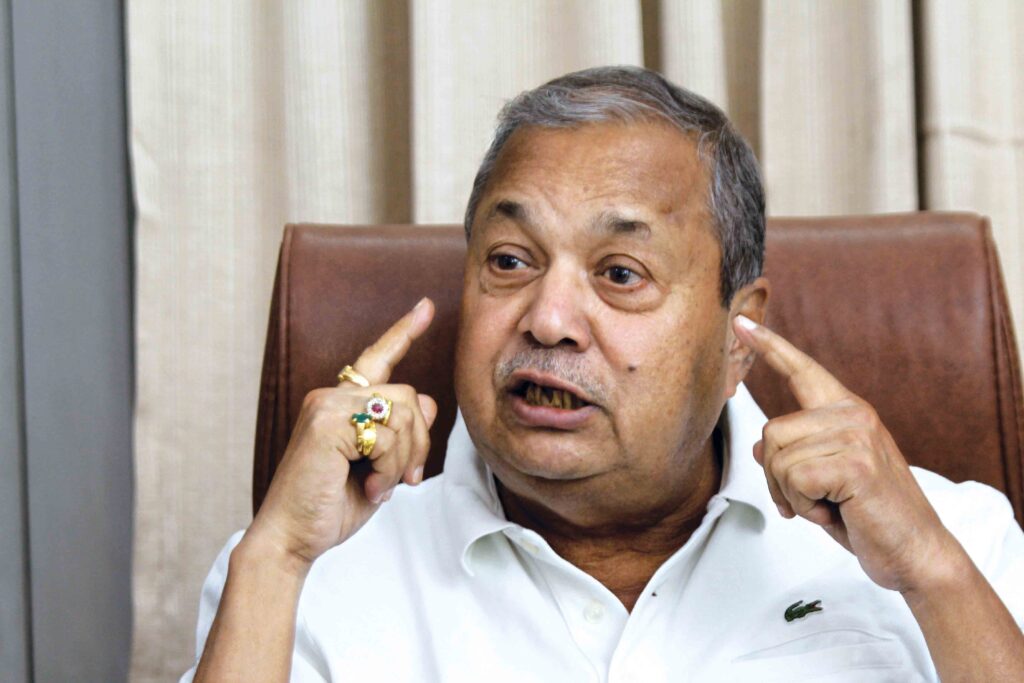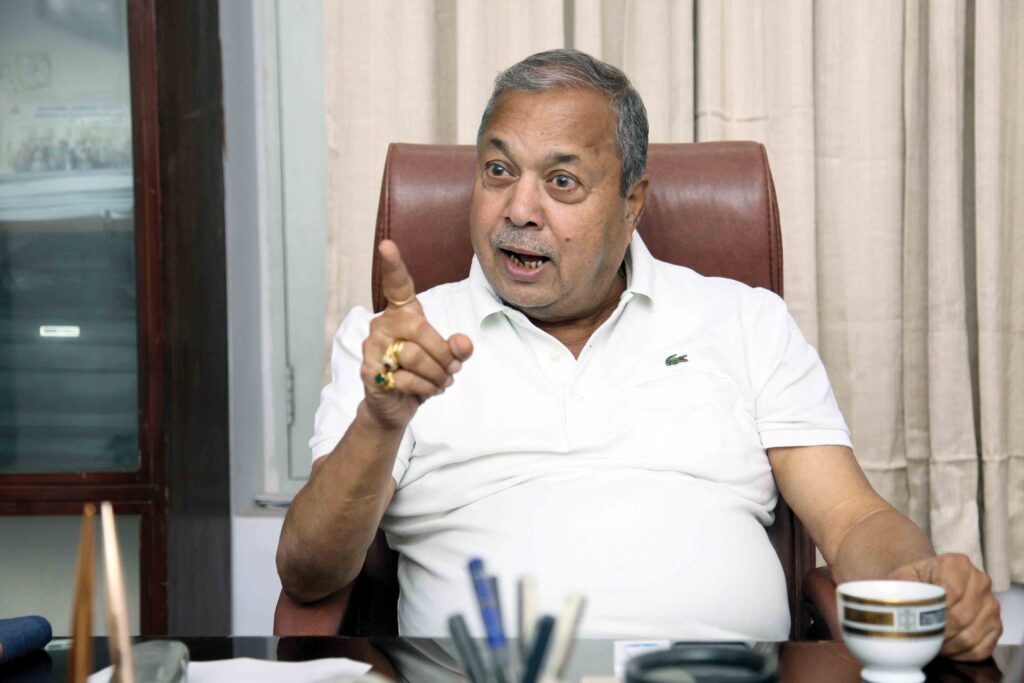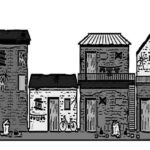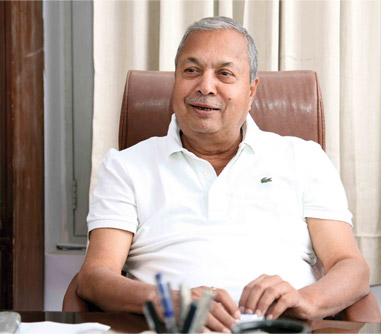JUSTICE Vikas Shridhar Sirpurkar found his calling at an age when many youths find themselves at a crossroads. When the Maharashtra Bar Council handed him a ‘Sanad’ (certificate to practise as a lawyer) on July 22, 1968, he decided that the legal profession would be his career. He was only 21 then.
“I realised I was always inclined to take up the profession. I stopped preparing for the IAS,”Justice Sirpurkar, who did his LLB from University College of Nagpur after doing his graduation from Morris College in the city in the same year, recollects.
For Justice Sirpurkar, the legal profession also happened to be a family vocation. His father, Shridhar Sirpurkar, practised law while his mother, Sunanda, was the first female lawyer at a taluka court in Warora where he was born and completed schooling.
His uncle, RV Sirpurkar, was considered an expert in mining cases while the latter’s son, SR Sirpurkar, practised law in Chhindwara. His father-in-law, BK De, was a lawyer while his grandfather-in-law, Rai Bahadur GB De, retired as a judge. His younger brother, Sanjay Sirpurkar, still practises at Chandrapur. His sister, Manju, is also a qualified lawyer but does not practise. His cousin CV Sirpurkar, is a judge in the Madhya Pradesh High Court while wife Kumkum, son Sangram and daughter-in-law Renuka are also lawyers.
Justice Sirpurkar practised as a lawyer for 24 years. He argued cases related to every stream—revenue, trusts, cooperatives, crime, preventive detention, elections and the constitution. A longside, he was elected Joint Secretary and Secretary of the High Court Bar Association, Nagpur.
He successfully contested the death sentence awarded to three persons (a total of eight persons were awarded death sentence) accused of a highway robbery. Subsequently, his wife, a senior advocate, got the five others acquitted in the Supreme Court. Justice Sirpurkar says he never lost any of the election petitions he argued in the courts.
In 1990, Sirpurkar’s name was considered for the post of Bombay High Court judge but he did not make it for some reason. About two years later, on November 9, 1992, he was finally elevated to High Court judge. He was 46 then. When he was receiving bouquets and being garlanded for the promotion, relatives of the highway robbery case accused, whom he got acquitted, were weeping in his chamber.
His wife, Kumkum, was his junior in the University College and once directed him in a play. In 1971, the two were on opposite sides of the fence for a while. He represented Jambuwantrao Dhote, who was elected to the Lok Sabha in 1971 from Nagpur, while Kumkum argued the case of RC Sharma, who had lost to Dhote in the polls. He won the case both in the Bombay High Court and later in the Supreme Court. Subsequently, the two opposing lawyers joined in matrimony.
In December 1997, Justice Sirpurkar was transferred to the Madras High Court. There he also held the post of Executive Chairman of the Tamil Nadu State Legal Services Authority and was instrumental in starting a judicial academy, Judicial Officers Training Institute (JOTI), at Madras.
Justice Sirpurkar condemns the violence at Patiala House court against accused JNU Students’ Union president Kanhaiya Kumar and mediapersons. “That was completely unjustified. Law should not have been taken into hands,” he says
On July 25, 2004, he was notified as the Chief Justice of Uttaranchal (former name of Uttarakhand) High Court. There too he started a judicial academy called UJALA (Uttarakhand Judicial and Legal Academy) and set up courts in 17 remote areas.
On March 20, 2005, Justice Sirpurkar was transferred as Chief Justice of Calcutta High Court. He ordered removal of 123 squatters from the court premises and cleaning of Kalighat, a Hindu Shakti Peeth in the city, apart from starting a judicial academy. He also administered oath of office to 16 High Court judges, increasing the actual strength of the court from 28 to 44 judges (against the sanctioned strength of 49 judges). On January 12, 2007, he was appointed a judge in the Supreme Court and demitted office four years and seven months later.

In the apex court, he confirmed the death sentence of Pakistani terrorist Mohammad Arif alias Ashfaq in the 2000 Delhi Red Fort attack as a member of a two-judge bench (the other judge was Justice TS Thakur, the current Chief Justice of India). The Red Fort attack case happened to be the last case probed by the Delhi Police Special Cell Inspector, the late Mohan Chand Sharma. He credits the confirmation of the death sentence to the ‘brilliant investigation’ done by Sharma.
Justice Sirpurkar does not agree with the Jawaharlal Nehru University students and teachers and others who call the hanging of Parliament attack accused Afzal Guru a ‘judicial murder’. “I don’t at all agree with them. He (Guru) was outwardly and inwardly given a fair trial,” he claims. But he would not support trial of disagreeing students and teachers under the contempt of court law. He terms the opposition an ‘insignificant opinion’.
He does not believe the judiciary has ever transgressed on the rights of the executive or Parliament. “There is no overreach. Whatever is done is a dire necessity. We have to be true to the Indian Constitution,” he says
Justice Sirpurkar, who served as Chairman of the Competition Appellate Tribunal (COMPAT), for 27 months, from May 22, 2012 onwards after retirement from the SC, condemns the violence at Patiala House courts against accused JNU Students’ Union president Kanhaiya Kumar and mediapersons. “That was completely unjustified. The law should not be taken into one’s hands,” he says.
Justice Sirpurkar, who has chaired the Authority of Advance Rulings (AAR) since December 4, 2014, wants lawyers not to be identified with the accused. “Lawyers are also officers of the court. They are supposed to make correct statement of law. Detachment is expected (from them),” he advises.
JUSTICE Sirpurkar does not believe the judiciary has ever transgressed on the rights of the executive or Parliament. “There is no overreach. Whatever is done is a dire necessity. We have to be true to the Indian Constitution,” he says and credits the balance among the three organs of the Indian democracy to the Constitution. “The judiciary only tests the law. Parliament can only create the law, can’t interpret. The executive implements the law,” he opines.
He blames pendency of cases on inadequate number of judges and infrastructure and backs the creation of fast courts, Lok Adalats, mediation, arbitration, plea bargaining and development of better work culture in the courts. “Create good infrastructure. Avoid unnecessary adjournments,” he counsels.

Justice Sirpurkar also wants improvement in policing, use of modern technology and better amenities for policemen. “The kind of respect the police gets in London or United States, it does not get here,” he points out. Justice Sirpurkar feels senior judges do not get influenced by media reporting and must have power to observe. He has taught at many judicial academies and visits Bhopal Academy every month. He wants court reporters and lawyers to imbibe the Indian philosophy under which the judiciary in the country works.
Justice Sirpurkar once asked trainees in a judicial academy, “What is the motto of the SC?” Fifty hands went up and everyone answered “Satyamev Jayate”, which is not the correct answer. The correct answer is, ‘Yato Dharma, Tato Jaya’ (Where there is righteousness, there is victory), a statement Gandhari made when Duryodhana approached her for blessings before the start of the war in Kurukshetra.
According to him, the idea behind the blindfolded deity of justice is not Roman or English, but the Mahabharata mother’s ‘unbias’.
As told to Narendra Kaushik



























































